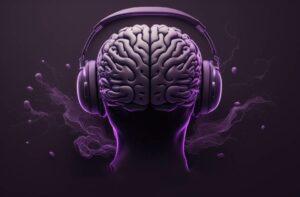Consciousness is a complex and multifaceted phenomenon that refers to the state of being aware of and able to think and perceive one's surroundings, thoughts, emotions, and sensations. It is a central aspect of human experience, enabling individuals to engage with the world, form memories, make decisions, and develop a sense of self. Despite its importance and ubiquity, the nature and origins of consciousness remain a subject of ongoing scientific inquiry and philosophical debate.
The study of consciousness encompasses various disciplines, including neuroscience, psychology, philosophy, and artificial intelligence. Researchers have explored the neural correlates of consciousness, seeking to identify specific brain structures, networks, and processes associated with conscious experience. Some theories, such as the Integrated Information Theory and the Global Workspace Theory, propose explanations for how consciousness arises from the complex interplay of neural activity.
Philosophical perspectives on consciousness range from materialism, which posits that consciousness is entirely based on physical processes, to dualism, which argues that consciousness is separate from the material world. The question of whether non-human animals or artificial intelligence systems can possess consciousness is also a topic of debate.
Consciousness
While the exact neural mechanisms underlying consciousness remain elusive, researchers have made progress in identifying specific brain regions, networks, and processes associated with conscious experience. The prefrontal cortex, thalamus, and parietal cortex have been implicated in various aspects of consciousness, and the default mode network has been linked to self-referential thinking and the sense of self. Theories such as the Integrated Information Theory and the Global Workspace Theory offer explanations for how consciousness may arise from the complex interplay of neural activity.
The question of whether non-human animals or artificial intelligence systems can possess consciousness is a topic of ongoing debate. Some researchers argue that certain animals, particularly mammals and birds, exhibit signs of consciousness, such as problem-solving, self-recognition, and the ability to experience emotions. However, the extent to which animal consciousness resembles human consciousness remains uncertain.
As for artificial intelligence, while current AI systems can perform complex tasks and exhibit human-like behavior, they lack the subjective experience and self-awareness associated with consciousness. Whether AI systems can achieve consciousness in the future depends on advancements in technology and a deeper understanding of the nature of consciousness itself.
Philosophers approach the study of consciousness by examining its nature, origins, and relationship to the material world. Various philosophical perspectives on consciousness include:
Materialism: The view that consciousness is entirely based on physical processes, with mental states corresponding to specific brain states.
Dualism: The belief that consciousness is separate from the material world, existing independently of the brain and physical processes.
Panpsychism: The idea that consciousness is a fundamental property of the universe, present in all matter to varying degrees.
Philosophers also explore questions related to the nature of subjective experience, the possibility of other minds, and the ethical implications of consciousness in non-human animals or artificial intelligence systems.
Related Semantic Entities for Consciousness






